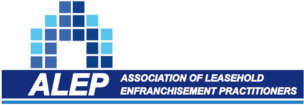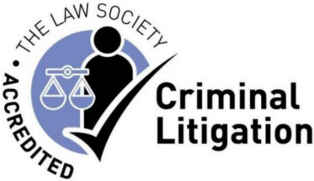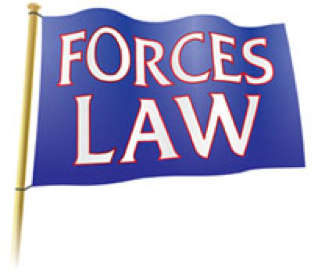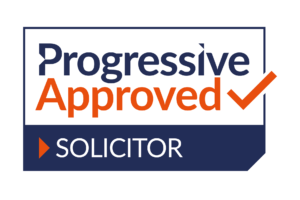Solicitors who can help you buy your council flat or home
Most people want to own their own home. Being able to create a living space that inspires you, by knocking down a wall or making a garden provides many with endless hours of joy. If you are struggling to put together a deposit or cannot make the mortgage payments on a property, purchasing your council house or flat under the right to buy scheme may be the perfect solution. And our Right To Buy Conveyancing Solicitors regularly help people just like you doing exactly that (conveyancing is the legal process involved in buying or selling property).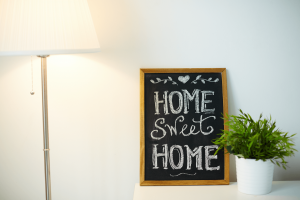
Below we explain all the information you need to know about the right to buy scheme in England. There are different schemes for Wales, Scotland and Northern Ireland.
Want to buy your council house or flat? Our Right To Buy Conveyancing Solicitors can help you and guide you through the process. Call us on FREEPHONE 0800 1404544 for an instant no obligation fee quote.
What is the right to buy?
If you are a secure or flexible council tenant, the right to buy provides the opportunity for you to purchase your home at a discounted rate.
NB Other public bodies such as NHS Trusts and police authorities are also considered public body landlords for the purposes of right to buy. In addition, a private registered provider of social housing may also be such a landlord if it acquired the particular dwelling as part of a stock transfer of properties from the local authority and the tenancy was entered into after 15 January 1989. However to keep things simple, we will simply refer on this webpage to “council tenants”.
Do I qualify for the right to buy?
You can only take advantage of the right to buy scheme if you meet certain eligibility conditions. These are as follows:
· You have a council or other public body tenancy. Your landlord is likely to be a district council, county council, county borough council, a London Borough Council, or the Common Council of the City of London.
· You or your husband or wife/civil partner (living or deceased) have had a public sector landlord (e.g. a council, housing association or NHS trust) for three years and you are living together at the time you enter into the right to buy scheme. The three years do not have to be consecutive.
· The council flat or house you want to buy is your only or your main home and it is self-contained. Self-contained means that you do not share any common areas such as the kitchen or a bathroom with other people.
I have outstanding rent arrears – is that a problem?
In short, yes. You are not eligible for the right to buy if you are in rent arrears.
Is anyone else prevented from exercising the right to buy?
Yes. The following categories of people are also prevented from buying their council property:
- undischarged bankrupts or anyone with a pending bankruptcy order against them
- if you have been ordered by the court ordered you to leave your property
- if you have committed fraud.
What properties are excluded from right to buy?
There are exceptions to the right to buy scheme where you will not be allowed to buy your home. These include the following :
· Your landlord is a charitable housing trust or housing association.
· Your landlord is a co-operative housing association.
· Your home has been rented to you as part of your employment.
· Your home is to be demolished in the next two years.
· Your home is suitable for elderly people.
How much is the discount?
The maximum right to buy discount is currently (as at October 2023) £96,000 across England, except in London boroughs where it is £127,900.
The level of discount increases every April in line with the consumer price index (CPI).
The discount you receive will be based on:
· How long you have lived in your property.
· Whether your property is a flat or a house.
· How much your property is worth.
- Houses and the level of discount
If you have been a council tenant for between three to five years you will receive a 35% discount on the market value of your home. After five years, the discount goes up 1% for every extra year you have been a council tenant, up to a maximum of 70% or the figures given above (whichever is lower).
- Flats and the level of discount
If you have been a council tenant for between three to five years you will receive a 50% discount on the market value of your home. After five years, the discount goes up 2% for every extra year you have been a council tenant, up to a maximum of 70% or the figures given above (whichever is lower).
Can my landlord refuse my right to buy application?
Yes – your landlord can reject your application if either:
1. you don’t meet any of the qualifying criteria listed above or
2. if your property is exempt from the right to buy scheme.
If your landlord refuses your application on the grounds your home is suitable for elderly people, you have the right to appeal to a Tribunal within 56 days of the refusal.
Can I change my mind and withdraw from the right to buy?
Yes, you can pull out of the right to buy process at any time and simply remain in your home as a tenant.
Is there any charge for applying for the right to buy?
No. However, there will be costs associated with purchasing your home. Right to buy conveyancing transaction costs include solicitor’s fees, property and title search fees, valuation fees, and mortgage application fees.
You will also need to consider all the other costs which come with owning your own home, for example, maintenance, insurance, decorating, and the garden (if you have one).
As a new home owner, it’s also really important that you have a valid and up-to-date Will to ensure your property goes to your chosen beneficiaries upon your death.
Click here to read more about making your will
Do I need a deposit for right to buy or can I use my council house discount?
It depends on the mortgage lender. Some lenders will take the discount you receive on your property instead of a cash deposit. Much will depend on the value of your property.
Remember, the lender needs to ensure you have enough equity in the property so if you cannot keep up your mortgage payments and they have to sell your home, they can recover from the sale price the money they lent to you.
Our Right To Buy Conveyancing Solicitors are happy to introduce you to a mortgage broker help you, if you do not have one already.
Do I have to pay back the discount if I sell my right to buy property?
Selling your right to buy property comes with certain restrictions.
If you decide to sell within 10 years of purchasing your home, you will need to offer it to your original or another local public body landlord. You can sell the property at full market price.
If you sell within five years, you will need to pay back some or all of the discount you received. Selling in the first year means you will have to pay back the entire discount. The payback amount reduces by 20% each year. After five years, you will not need to pay any refund.
Another catch to beware of when selling is that if the value of your property has increased over the time you have owned it, the amount under the discount you will have to pay back will also go up.
How long does the right to buy conveyancing process take?
It typically takes between three and six months to purchase a home under the right to buy scheme.
If your landlord does not meet the timescales set out below (the process of right to buy) you may be able to secure a further discount on the purchase price by serving what is called “a delay notice”, which is explained further down this page.
What is the process for purchasing my council property under right to buy?
To start a right to buy application you need to take the following steps:
1. Serve your landlord with a Form RTB1 notice.
2. Your landlord must reply saying yes or no to your application within four weeks (if they have been your landlord for less than three years they have eight weeks to respond).
Your landlord can only refuse if they believe you do not have the right to buy (see below).
3. If your landlord says yes to you buying the property they will send you an offer. This is known as a section 25 notice.
- This s25 offer must be sent within eight weeks if you are buying a freehold property (usually a house) or 12 weeks if the property is leasehold (usually a flat).
- The purchase price will be the market value of the property less the right to buy discount (see below).
- The offer will also include a description of the land and house, an estimate of the service charges (if applicable), and any known problems associated with the property.
- You must either accept or decline the landlord’s offer within 12 weeks.
- You will receive a reminder from the landlord if you do not reply within this time.
- If you fail to make contact within 28 days of the reminder your landlord can dismiss your application. During that 12 week period, if you believe your landlord has overvalued your home, you can ask to have the property valued by a district valuer from HM Revenue and Customs (HMRC).
What is a right to buy delay notice?
If your landlord misses the timescales for the right to buy process, you can send them an ‘Initial notice of delay’ form (RTB6). Upon receipt of that for, your landlord can either move the sale along by one month or serve you with a counter-notice explaining why they cannot hurry the process.
If your landlord fails to respond within a month of getting the RTB6, you can complete the ‘Operative notice of delay’ form (RTB8). This means that any rent you pay while you are waiting to hear from your landlord could be deducted off the sale price. But don’t worry about this. If your landlord is slow, our team will handle these notices for you.
Can I buy my council house if I am on benefits?
Technically there is no reason why people on benefits cannot buy their own home. However, in reality, few lenders will provide a mortgage to a person on benefits – those that do have exceptionally high-interest rates to compensate for the risk of lending to a person who is not in work.
If you are employed and receive one or more of the supplementary benefits listed below, some mortgage lenders will take the benefit income into account when deciding on whether to lend you the money to purchase your home.
- Attendance Allowance
- Bereavement Support Payment (BSP)
- Carer’s Allowance
- Child Benefit or Child Tax Credit
- Employment and Support Allowance (ESA)
- Industrial Injuries Disablement Benefit (IIDB)
- Maternity Allowance
- Personal Independence Payment (PIP)
- Pension Credit
- Universal Credit
- Working Tax Credit
In the recent right to buy reforms announcement, the government pledged to turn ‘benefits to bricks’ – changing welfare rules so that the 1.5 million people who are in work but also on housing benefit will be given the choice to use their benefit towards a mortgage, rather than it automatically going directly to private landlords and housing associations. However it remains to be seen whether these plans ever turn into law.
I live in a council flat – do I have the right to buy?
Yes, the scheme is not just limited to Council houses. So you can use the right to buy scheme to purchase your council flat if you meet the eligibility criteria set out above.
Do I need a conveyancing solicitor for the right to buy?
You are not legally required to instruct a solicitor when buying your council house or flat under the right to buy scheme. However, not doing so is a terrible idea. and in instructing solicitor, make sure you appoint experienced Right To Buy Conveyancing Solicitors. Many solicitors don’t routinely deal with the right to buy (don’t worry our team handled these transactions for clients throughout England on a routine basis) – and as you can see from this page, it’s a complex area.
And what’s more, if you’re taking out a mortgage to buy the property, then the lender is almost certain to insist on you are appointing a solicitor to handle the legal side of your home purchase – the conveyancing.
DIY conveyancing is actually very rare. Given that you will be spending, tens, if not hundreds of thousands of pounds on purchasing your property, even taking the discount into account, you want to be assured that the legal aspects of your purchase are OK before you commit. If you try to do your own conveyancing you are likely to miss one, if not several vital aspects of the process and fail to do correct due diligence on the property.
Our right to buy conveyancing solicitors offer fixed fees – and we are happy to talk with you about how much your legal fees to buy your council property will be. It is likely to be less than you imagine. So call us now for your conveyancing quote.
And you can rely on us for the specialist advice and representation you need. Here at Bonallack & Bishop, our property team are members of the Conveyancing Quality Scheme. CQS is the Law Society’s own recognised quality mark for legal experts in buying or selling property.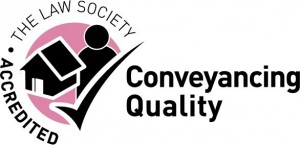
Can I rent out my house after exercising the right to buy?
Yes, you can let out your home if you have purchased it through the right to buy scheme. However, you will need to get a buy to let mortgage and many lenders are reluctant to provide such products on right to buy properties.
If you do take out a straight residential mortgage and then rent your property out, you will almost certainly be in breach of the conditions of your mortgage. So please don’t do it.
Can I remortgage my right to buy property?
Yes, but you must obtain consent from the public body who provided the right to buy discount. You will also need to instruct a remortgage solicitor to ensure all the due diligence on the property and remortgage offer are checked and your best interests are protected.
Do I have to pay stamp duty on right to buy?
Yes, stamp duty will need to be paid if you purchase your property through the right to buy scheme. Your solicitor will calculate how much damp duty you will need to pay.
What happens on completion day for right to buy?
There are critical stages in the conveyancing process where you make a legal commitment. Exchange is where your Right To Buy Conveyancing Solicitors and the council’s own solicitors exchange contracts – at that stage you’re committed to buying your home, and normally a date will be set for completion. Completion date is often 14 to 28 days after exchange.
Completion is when the transaction is completed, and you actually own your own home – the day when all monies owing on your purchase change hands. Those monies include both stamp duty and solicitor’s fees owed.
However, you will, of course, not need to move your furniture in or collect the keys as you already live at the property. The only thing left for you to do is relax and celebrate.
Confused by conveyancing jargon? Many people are. Click here to read all about Conveyancing Terms Explained:A to Z
Can I share my right to buy?
You do not have to purchase your home by yourself. You can make a joint right to buy application with:
· Someone who shares your tenancy.
· Your husband, wife or civil partner.
· Up to three family members who have lived with you for the past 12 months, provided the property you are all purchasing is everyone’s main home.
Can I buy a different property from the one I live in?
No, one of the conditions of using the right to buy scheme is that it must be your home – so you must already live in the house or flat you want to buy.
We have a joint tenancy, but only one of us wants to buy. Is that OK?
Yes, but you will both have to agree that one of you will buy the property. The other person on the tenancy agreement will become your tenant once the sale is completed.
Can I extend the lease on my Ex-Council Flat?
Do you own an ex-council flat but your lease term is getting short? If so, you have the legal right to extend your lease for an additional 90 years, although you will need to pay the council to do so.
Our specialist team of 5 leasehold experts is one of the largest and most knowledgeable teams of its type in the UK – and we readily handle lease extensions for ex council property.
Click here to read more about Extending The Lease On An Ex-Council Flat
My home is in poor condition – will the council fix it up before I buy it?
Your landlord must keep your property in a state of repair as agreed in your tenancy contract. However, once you submit a right to buy application, only urgent repairs will likely be carried out.
If you are concerned about the poor state of your home, it is a really good idea to have a detailed building inspection carried out before you commit to buying.
The difference between buying freehold and leasehold property
Whether or not the flat or house your buying is owned by a local Council or not, there are broadly two types of property ownership in England and Wales: freehold and leasehold. That difference is important.
As a freeholder, you own the property outright, including the land. This applies to most houses in England and Wales.
Leasehold property, which typically applies to flats and apartments (though there are a surprising number of leasehold house nationwide), is owned for a fixed amount of time (e.g. 99 years) – once this time expires, the ownership goes back to the tenant. So that means, even if you do buy your council flat, and although you will own a long lease, you won’t have the freedom that you would have with freehold – and you will still be subject to restrictions imposed by the council in your lease.
If you’re planning on buying your leasehold council flat, our conveyancing team will guide you through the process. We will make sure that you understand your lease and what you can and can’t do under it, and that any potential problems are identified.
In particular, if it’s a leasehold flat or house, we will deal with the following issues:
- The amount of ground rent payable and how it may increase over time. High ground rent can be a financial burden.
- Review the service charge details, including maintenance, repairs, and communal areas and ensure these are reasonable.
- Understand any restrictions in a lease, including limitations on subletting, making alterations, or keeping pets
- Investigate any historical issues related to the property or lease, including disputes or maintenance problems and
- Check whether any expensive block maintenance projects are planned in the near future – these often referred to as major works and can prove very expensive
I have lived in Armed Forces accommodation – can I use this time towards the right to buy three-year qualification requirement?
Yes, any time you or your spouse/civil partner spent living in HM Armed Forces accommodation can count towards your three-year qualifying period.
How many people have bought their property using right to buy?
According to the government’s own statistics, 1,992,799 social housing homes were sold through the Right to Buy schemes between April 1980 and March 2021.
Is the Help to Buy scheme different?
The help to buy scheme is an umbrella term for a series of government schemes designed to enable people, especially first-time buyers, to purchase residential property. Currently, there are 3 active components of the programme:
· Help to Buy equity loans – the buyer contributes five per cent of the deposit for a property and the government tops this up with an equity loan of up to 20% (40% in London) of the property’s value. The equity loan is interest free for the first five years.
· Help to Buy Isas – this comprises of a tax free home deposit savings account. For every £200 you contribute, the government will add £50, up to a maximum of £3,000. The government bonus is paid when you purchase an eligible property.
· Forces Help to Buy – a scheme limited to serving members of HM Forces

